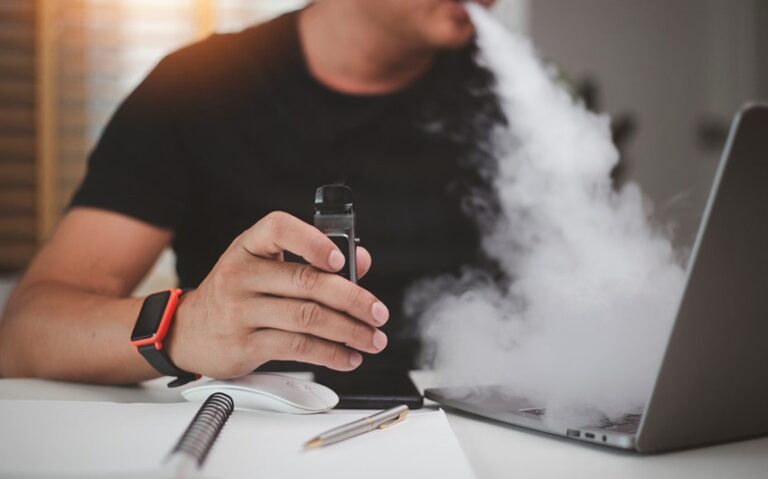How Old Do You Have to Be to Get a Tattoo Legally
Thinking about getting a tattoo but not sure if you’re old enough? You’re not alone! One of the first questions people ask is, “how old do you have to be to get a tattoo?” The answer isn’t always straightforward, as it depends on where you live and whether parental consent is involved. Tattoos are a big commitment, especially for younger individuals, so it’s important to know the rules before you make that decision.
In this article, we’ll break down the age requirements, explain why these rules exist, and explore what you should consider before getting inked.
Legal Age Requirements for Tattoos in Different Countries
Tattoo age requirements vary widely across different countries, each with its own set of rules and regulations designed to protect minors. In the United States, the legal age to get a tattoo without parental consent is generally 18. However, some states allow minors as young as 16 to get tattoos with parental permission, while others have stricter laws prohibiting tattoos for anyone under 18 regardless of consent. This patchwork of laws can make it confusing for those looking to get inked, especially if they live near state borders where the rules might differ.
In the United Kingdom, the law is straightforward: you must be 18 to get a tattoo, no exceptions. This rule applies across England, Scotland, Wales, and Northern Ireland, and parental consent does not make a difference.
Similarly, in Canada, the legal age varies by province, but many regions also set the minimum age at 18, with some provinces allowing tattoos at 16 with parental consent. In Australia, the rules are also state-dependent, with some allowing tattoos for those 16 and older with parental permission, while others maintain a strict 18-and-over policy. Knowing the specific regulations in your country or region is crucial before deciding to get a tattoo.
Tattoo Age Restrictions by State (USA)
Tattoo age restrictions in the United States can be quite complex, as they are governed by individual state laws rather than federal regulations. Most states have set the legal age for getting a tattoo at 18, which aligns with the age of majority when an individual is considered legally responsible for their decisions. However, there are significant variations from state to state, especially when it comes to minors. Some states allow tattoos on minors with parental consent, while others strictly prohibit tattooing individuals under 18, regardless of parental involvement.
Strict 18 and Over States
Several states, including New York, California, and Texas, enforce a strict rule of no tattoos for anyone under 18, even with parental consent. These states prioritize the health and safety of minors by setting firm boundaries that don’t allow exceptions, aiming to protect young individuals from making permanent decisions before reaching legal adulthood. In these states, tattoo artists who violate these laws can face severe penalties, including fines and license suspension.
States Allowing Parental Consent
In many states, including Florida, North Carolina, and Ohio, minors aged 16 or 17 can get tattoos if they have explicit parental consent. This often involves a parent or legal guardian being present during the tattoo session and signing a consent form, sometimes accompanied by a valid ID to verify the relationship. Some states, such as Idaho and Colorado, require additional steps, such as notarized consent forms or mandatory consultations to discuss the risks involved in tattooing minors. These measures ensure that parents are fully aware of the implications and that minors are making informed decisions.
Unique State Regulations and Restrictions
Some states have specific restrictions beyond just age. For example, in South Carolina, even with parental consent, tattoos are not allowed on the face, neck, or hands, areas considered too visible or socially sensitive for minors. Tennessee also restricts certain tattoo placements for those under 18, aiming to minimize the impact of such visible tattoos on a young person’s future opportunities.
Meanwhile, in Oregon and Washington, the law mandates that tattoo artists provide detailed aftercare instructions and discuss potential health risks, particularly when tattooing minors, ensuring that both parents and teens understand the responsibilities that come with getting a tattoo.
Penalties for Non-Compliance
Tattoo artists who fail to adhere to state regulations can face serious consequences, including hefty fines, loss of their business license, and in some cases, criminal charges. States like Georgia and Michigan are particularly strict, conducting regular inspections of tattoo parlors to ensure compliance with age-related laws and health standards. This rigorous enforcement underscores the importance of adhering to state laws and reinforces the message that tattooing minors should be approached with caution and responsibility.

Reasons Behind Age Restrictions
Age restrictions for tattoos are put in place primarily to protect minors from making permanent decisions that they may not fully understand or may later regret. Tattooing is a significant, lifelong commitment that involves more than just artistic expression—it’s a medical procedure that punctures the skin and carries risks such as infections, allergic reactions, and scarring.
Minors, often lacking the maturity and foresight that come with age, might not fully comprehend these risks or the long-term implications of getting a tattoo. Age restrictions aim to ensure that individuals are mature enough to make an informed decision about altering their bodies permanently.
Health and safety are central concerns behind these laws. The skin of younger individuals is still developing, which can affect how a tattoo heals or how it may look over time. Tattooing on younger skin can sometimes lead to increased risks of complications, such as excessive bleeding or delayed healing, compared to adults. Age restrictions help to mitigate these risks by ensuring that the person undergoing the procedure has a body that is more equipped to handle the physical stress of tattooing.
Additionally, tattoo studios are regulated to follow strict health guidelines, and age restrictions help ensure that only those capable of understanding and managing these health requirements receive tattoos.
Protecting Minors from Peer Pressure and Impulsive Decisions
Teenagers are often under immense peer pressure to conform or to act impulsively, which can lead to hasty decisions like getting a tattoo without fully considering the consequences. Tattoos are permanent, and what may seem like a great idea at 16 might not align with one’s views or lifestyle later in life.
Age restrictions serve as a protective barrier, giving young individuals time to mature and consider the long-term impact of their decisions. By setting a minimum age, these laws help minimize the number of impulsive tattoos that are later regretted, reducing the need for expensive and painful tattoo removal procedures.
Furthermore, tattoos can have social and professional implications. Visible tattoos, particularly on the face, neck, or hands, can affect future job prospects, as some employers still have strict policies regarding body art. Minors, who may not yet have a clear vision of their career path or life goals, might not fully grasp how a tattoo could impact their opportunities. Age restrictions provide a buffer period, allowing individuals to reach an age where they can make more informed decisions that align with their future aspirations.
Legal and Ethical Considerations
There are also legal and ethical reasons for enforcing age restrictions on tattoos. Legally, minors are considered unable to enter into binding contracts, including those required for tattoo procedures. Tattoo artists and studios could face legal repercussions if they tattoo a minor without adhering to local laws, including fines, loss of licenses, or even lawsuits. Age restrictions protect tattoo artists by providing clear guidelines on who they can legally tattoo, reducing the risk of legal conflicts.
Ethically, tattooing minors can be seen as taking advantage of an individual’s lack of experience and understanding. Professional tattoo artists are aware of the ethical responsibility they hold when marking someone’s body permanently. By adhering to age restrictions, they uphold a standard that respects the physical and emotional well-being of younger individuals. These laws ensure that tattooing remains a consensual, well-considered decision made by those who are legally and mentally equipped to handle the consequences, ultimately maintaining the integrity of the profession.
Things to Consider Before Getting a Tattoo as a Minor
Before getting a tattoo as a minor, there are several important factors that you should carefully consider. First and foremost, think about the permanence of a tattoo. Unlike other forms of self-expression, tattoos are lifelong decisions that can’t be easily undone. While laser tattoo removal exists, it is expensive, painful, and not always completely effective. Consider whether the design you want now is something you’ll still love in five, ten, or even twenty years. Trends and personal tastes change over time, and a tattoo that feels meaningful now may not hold the same value later in life.
Health and safety are also crucial considerations. Minors are at a higher risk of complications from tattoos due to still-developing skin and immune systems. You should research the tattoo studio thoroughly to ensure they follow all health regulations, use sterile equipment, and have experienced artists.
Additionally, think about your ability to commit to proper aftercare, which is essential for preventing infections and ensuring your tattoo heals correctly. Healing requires keeping the tattoo clean, avoiding sun exposure, and following strict care guidelines—something that might be challenging for a busy teenager with school, sports, or other activities.
Another key aspect to consider is the potential impact on your future. Visible tattoos, especially on areas like the hands, neck, or face, can affect job opportunities, college admissions, or even your social life. Although societal acceptance of tattoos has increased, there are still fields where visible tattoos are frowned upon. Before getting inked, discuss your decision with trusted adults, consider seeking professional advice, and thoroughly weigh the pros and cons. Make sure your decision is driven by personal values rather than peer pressure or a spur-of-the-moment desire.
Alternatives to Tattoos for Younger People
If you’re under 18 and not yet ready for the lifelong commitment of a tattoo, there are plenty of creative alternatives that allow you to express yourself without the permanence. One popular option is temporary tattoos, which have come a long way from the simple designs of the past.
Today, you can find high-quality, realistic temporary tattoos that last from a few days to a couple of weeks. These are perfect for experimenting with designs and placements to see what you like before committing to the real thing. Henna tattoos are another fantastic option, offering beautiful, intricate designs that fade naturally over a few weeks.
For a more personalized touch, you can explore body paint or makeup tattoos, which allow you to create custom designs that can be washed off whenever you want. This is a fun way to try different styles, colors, and placements without any risk. There are also body sticker options, such as tattoo sleeves or metallic tattoos, that mimic the appearance of real ink but can be removed easily. These alternatives give you the flexibility to change your look often, catering to your evolving tastes without any permanent effects.
Another option is using fashion as a form of self-expression. From clothing and accessories to hairstyles and piercings, there are countless ways to showcase your unique style without committing to a tattoo. Customizing your wardrobe or experimenting with bold makeup can be just as impactful as body art and allows you to reinvent yourself as often as you like. Remember, there’s no rush to get a tattoo—exploring these alternatives can help you express yourself creatively while giving you time to mature and make a more informed decision about getting inked in the future.







